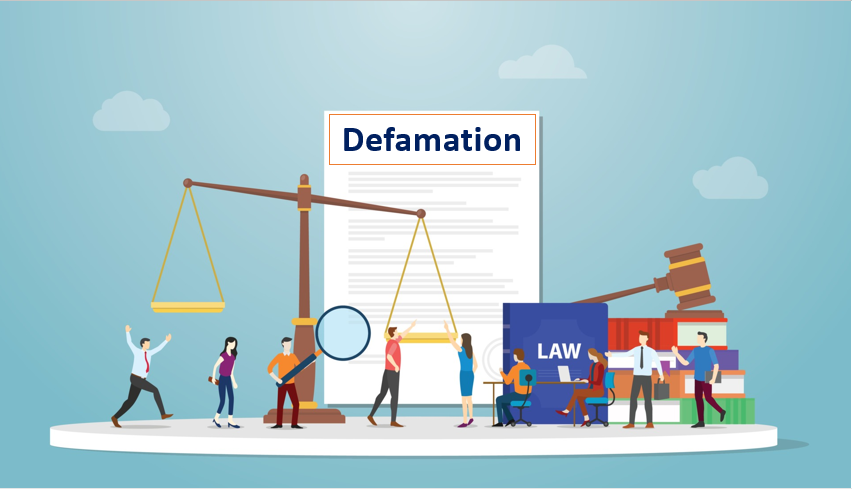Published On: 5th October, 2024
Authored By: Saniya Momin
ILS law college, Pune
Confidentiality is Arbitration is wide and open to all of us but what does this actually means? By agreement between the parties, a disagreement may be brought to one or more arbitrators for arbitration. The arbitrators then render a legally binding verdict on the matter. The whole process revolves amongst the parties and the arbitrators selected by them consensually. Thus arbitration is an agreement between the parties at dispute who choose to maintain secrecy and confidentiality over their matter without involving court and public in general to avoid the publicity of the arbitration proceedings.
Is Arbitration wholly Confidential?
We have heard a lot stories about how disputes were resolved in ancient times of history when there were no courts or any formal institution of dispute resolution then we amongst ourselves used arbitration method unknowingly to avoid being the talk of the town. These was the outcome in accordance to keep the matter personal and private within the family for sake of confidentiality.
But in the 1990s, as the use of international arbitration increased and more people started to examine different aspects of arbitration more closely, this conventional wisdom was severely challenged. Those The degree of confidentiality of arbitrations was one of the factors taken into account. In the mid- to late-1990s, the courts in Australia and Sweden heard cases involving this issue, and they rejected the idea of an all-encompassing duty of confidentiality in arbitration. This sparked discussions about arbitration confidentiality in numerous jurisdictions and resulted in new laws in others. It also prompted several reputable arbitral organizations to revise their policies to make clearer their stance on confidentiality.
Therefore, according to the experts ,the law of the jurisdiction where the arbitration will take place as well as any rules that the parties may have agreed upon when they agreed to arbitrate will determine whether or not the arbitration is confidential.[1]
Why Confidentiality?
A fundamental component of the arbitration process, confidentiality is essential to preserve the reliability and integrity of this alternative dispute resolution method. Maintaining confidentiality is crucial to avoid harm to one’s reputation, business connections, and strategic interests because arbitration frequently involves sensitive commercial or personal information.
Additionally, maintaining confidentiality creates a secure atmosphere that encourages candid dialogue, enabling participants to exchange information freely and strive toward a win-win outcome. Thus, keeping confidentiality in arbitration is crucial; lets say for example, an employee, or a member of senior management, being publicly cross-examined and subject to judicial criticism, with proceedings in some courts televised or put on the internet indefinitely. This could imply that, despite having a strong case, a party may feel pressured to settle or compensate for the loss of business and reputation that would result from going to court.
Many firms find a secret dispute settlement process appealing because it shields the parties from this potential. [2]
Arbitration Rules on Confidentiality
WIPO has put forth Arbitration Rules which are effective from 1st July 2021 and also includes the rules for Disclosure of Trade Secrets and other Confidential information. It defines Arbitration and the process by which a party may choose to keep the information as private through the process of Arbitration by following the rules given below:
- By sending a notice to the Tribunal and copying it to the other party, a party may request to have any information it wants or is required to submit in the arbitration—including to an expert the Tribunal has appointed—classified as confidential. The party shall specify in the notice the reasons it believes the information to be confidential, without divulging the content of the
- The Tribunal will decide whether the material should be considered confidential or The Tribunal may decide which parties and under what circumstances the confidential information may be disclosed. It will also mandate that anyone to whom the confidential information is disclosed sign a suitable confidentiality undertaking.
- Under extraordinary circumstances, the Tribunal may, at the request of a party or on its own motion and after consulting with the parties, designate a confidentiality advisor who will determine whether the information is to be classified as confidential and, if so, decide under which conditions and to whom it may be disclosed in part or in full. Rather than deciding for itself whether the information is to be classified as confidential and of such nature that the absence of special measures of protection in the proceedings would be likely to cause serious harm to the party invoking its confidentiality. Any such counsel on confidentiality shall be obliged to sign a suitable pledge on
- In addition, the Tribunal may, upon request from a party or on its own initiative, designate the confidentiality advisor as an expert in line with Article 57 so that the advisor may report to the Tribunal on particular issues chosen by the Tribunal based on the confidential information without revealing the confidential information to the Tribunal itself or to the party from whom it does not [3]
Indian Legislation on Arbitration Confidentiality
Parties in India can choose between institutional and ad hoc arbitration. If parties choose ad hoc arbitration, they are free to include a confidentiality clause in the arbitration agreement; however, if parties choose institutional arbitration, they must abide by the rules set forth by the institution.
The Arbitration and Conciliation Act, 1996 governs confidentiality in arbitration in India. On the advice of the Justice B.N. Srikrishna Committee, which produced a report with specific recommendations to strengthen arbitration in India, a provision pertaining to confidentiality was added to the Act. The Arbitration and Conciliation (Amendment) Act, 2019 adopted the recommendation and added Section 42A.[4]
Information in the arbitration is confidential, according to Section 42A. It requires the arbitrator, arbitral tribunal, and arbitration parties to follow the principle of confidentiality, with the exception of the award, which must be disclosed when it is required to be implemented and enforced. Since it is a non-obstante clause, it takes precedence over all other laws in the act.
The other participants in the arbitration process, such as clerks, stenographers, witnesses, etc., are not covered by Section 42A. This section outlines the exceptions to the Arbitration and Conciliation Act, 1996’s Sections 8, 9, 11, 17, and so forth. Parties may approach the court to request relief under the relevant section, and third parties may also do so to request a reference to an ongoing proceeding. Consequently, there’s a good chance that the parties requesting judicial intervention will need to rely on the arbitration’s confidential information.[5]
Conclusion:
One of the most crucial aspects of arbitration procedures is confidentiality. Still, it’s clear that enforcing confidentiality obligations comes with a lot of challenges. Confidentiality was not given much weight in the early stages of the development of arbitration laws, but presently, a growing number of laws have made this issue a priority. Section 42A is a commendable attempt by India to safeguard confidentiality, but because of its narrow wording, it only makes matters worse.
However it cannot be denied that Arbitration can be far more confidential than litigation, even though absolute and enduring confidentiality may not always be possible due to factors like the possibility of national courts making information public. If parties want to take advantage of the veil of secrecy, they should make sure that both the arbitration and the verdict are kept private in their arbitral agreement.
References
[1] Richard Smellie, Is Arbitration Confidential? , (https://www.fenwickelliott.com/sites/default/files/richard_smellie_-_is_arbitration_confidential.pdf)
[2] https://www.charlesrussellspeechlys.com/en/insights/expert-insights/dispute- resolution/2023/confidentiality-in-arbitration—a-cloak-with-holes/
[3] https://www.wipo.int/amc/en/arbitration/rules/index.html
[4] The Arbitration and Conciliation Act, 1996, No 26, Acts of Parliament, 1996(India).
[5] Bhavya Sharma, Importance of Confidentiality in Arbitration, (https://ibclaw.in/importance- of-confidentiality-in-arbitration-by-bhavy-sharma/ )



Excellent 👍🏻